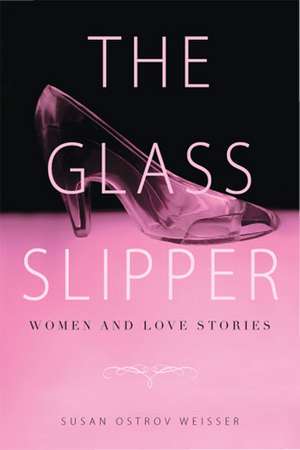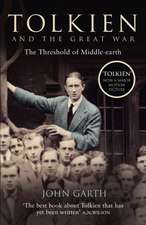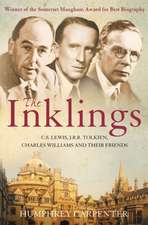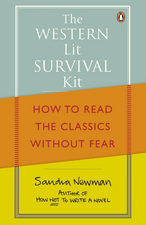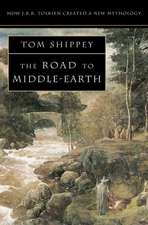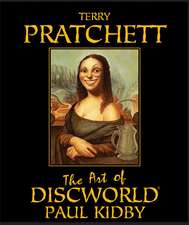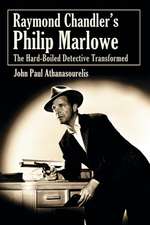The Glass Slipper: Women and Love Stories
Autor Susan Ostrov Weisseren Limba Engleză Paperback – 9 oct 2013
Why is the story of romance in books, magazines, and films still aimed at women rather than at men? Even after decades of feminism, traditional ideas and messages about romantic love still hold sway and, in our “postfeminist” age, are more popular than ever. Increasingly, we have become a culture of romance: stories of all kinds shape the terms of love. Women, in particular, love a love story.
The Glass Slipper is about the persistence of a familiar Anglo-American love story into the digital age. Comparing influential classics to their current counterparts, Susan Ostrov Weisser relates in highly amusing prose how these stories are shaped and defined by and for women, the main consumers of romantic texts. Following a trajectory that begins with Jane Austen and concludes with Internet dating sites, Weisser shows the many ways in which nineteenth-century views of women’s nature and the Victorian idea of romance have survived the feminist critique of the 1970s and continue in new and more ambiguous forms in today’s media, with profound implications for women.
More than a book about romance in fiction and media, The Glass Slipper illustrates how traditional stories about women’s sexuality, femininity, and romantic love have survived as seemingly protective elements in a more modern, feminist, sexually open society, confusing the picture for women themselves. Weisser compares diverse narratives—historical and contemporary from high literature and “low” genres—discussing novels by Jane Austen and Charlotte Brontë, Victorian women’s magazines, and D. H. Lawrence’s Lady Chatterley’s Lover; Disney movies; popular Harlequin romance novels; masochistic love in films; pornography and its relationship to romance; and reality TV and Internet ads as romantic stories.
Ultimately, Weisser shows that the narrative versions of the Glass Slipper should be taken as seriously as the Glass Ceiling as we see how these representations of romantic love are meant to inform women’s beliefs and goals. In this book, Weisser’s goal is not to shatter the Glass Slipper, but to see through it.
The Glass Slipper is about the persistence of a familiar Anglo-American love story into the digital age. Comparing influential classics to their current counterparts, Susan Ostrov Weisser relates in highly amusing prose how these stories are shaped and defined by and for women, the main consumers of romantic texts. Following a trajectory that begins with Jane Austen and concludes with Internet dating sites, Weisser shows the many ways in which nineteenth-century views of women’s nature and the Victorian idea of romance have survived the feminist critique of the 1970s and continue in new and more ambiguous forms in today’s media, with profound implications for women.
More than a book about romance in fiction and media, The Glass Slipper illustrates how traditional stories about women’s sexuality, femininity, and romantic love have survived as seemingly protective elements in a more modern, feminist, sexually open society, confusing the picture for women themselves. Weisser compares diverse narratives—historical and contemporary from high literature and “low” genres—discussing novels by Jane Austen and Charlotte Brontë, Victorian women’s magazines, and D. H. Lawrence’s Lady Chatterley’s Lover; Disney movies; popular Harlequin romance novels; masochistic love in films; pornography and its relationship to romance; and reality TV and Internet ads as romantic stories.
Ultimately, Weisser shows that the narrative versions of the Glass Slipper should be taken as seriously as the Glass Ceiling as we see how these representations of romantic love are meant to inform women’s beliefs and goals. In this book, Weisser’s goal is not to shatter the Glass Slipper, but to see through it.
Preț: 263.91 lei
Nou
Puncte Express: 396
Preț estimativ în valută:
50.50€ • 52.72$ • 41.79£
50.50€ • 52.72$ • 41.79£
Carte tipărită la comandă
Livrare economică 05-19 aprilie
Preluare comenzi: 021 569.72.76
Specificații
ISBN-13: 9780813561776
ISBN-10: 0813561779
Pagini: 254
Dimensiuni: 152 x 229 x 18 mm
Greutate: 0.4 kg
Ediția:None
Editura: Rutgers University Press
Colecția Rutgers University Press
ISBN-10: 0813561779
Pagini: 254
Dimensiuni: 152 x 229 x 18 mm
Greutate: 0.4 kg
Ediția:None
Editura: Rutgers University Press
Colecția Rutgers University Press
Notă biografică
SUSAN OSTROV WEISSER is a professor of English at Adelphi University. She is the author of A Craving Vacancy: Women and Sexual Love in the British Novel 1740–1880, and the editor of Women and Romance: A Reader,as well as three scholarly editions of classic novels by Jane Austen, Charlotte Brontë, and D. H. Lawrence.
Cuprins
Preface
Introduction
1. The Odd Couple
2. Why Charlotte Bronte Despised Jane Austen
3. The True and Real Thing
4. Victorian Desires and Modern Romances
5. For the Love of Mermaids, Beasts, and Vampires (and Ghosts, Robots, Monsters, Witches, and Aliens)
6. Women Who Love Too Much . . . or Not Enough . . . or the Wrong Way
7. Feminism and Harlequin Romance
8. A Genre of One’s Own
9. Is Female to Romance as Male Is to Porn?
10. Modern Romance
Conclusion
Notes
Selected Bibliography
Index
Introduction
1. The Odd Couple
2. Why Charlotte Bronte Despised Jane Austen
3. The True and Real Thing
4. Victorian Desires and Modern Romances
5. For the Love of Mermaids, Beasts, and Vampires (and Ghosts, Robots, Monsters, Witches, and Aliens)
6. Women Who Love Too Much . . . or Not Enough . . . or the Wrong Way
7. Feminism and Harlequin Romance
8. A Genre of One’s Own
9. Is Female to Romance as Male Is to Porn?
10. Modern Romance
Conclusion
Notes
Selected Bibliography
Index
Recenzii
"Weisser dissect[s] the myths and persistence of the love story. She finds the story of the glass slipper—the arrival of a man who represents the 'perfect fit'—to be as pernicious as the limitations of the glass ceiling"
"In its impressive scope and critical trajectory, The Glass Slipper is likely to be the most useful book on its subject yet."
"The Glass Slipper compellingly urges readers and critics to question whether subversion is really possible in the romance narratives consumed en masse by Western culture."
"A critical but compassionate exploration of how the romantic stories women tell and consume reflect the anxieties associated with our changing options and constraints. Perceptive and thought-provoking."
"With her lively and witty style, Weisser argues in this absorbing and ambitious work that our culture is dominated by fundamentally conservative assumptions about romantic love, marriage, and gender."
"The Glass Slipper is a fine addition to gender and popular culture studies. Its sound scholarship and engaging, witty style demonstrate that the more things change, the more they too often stay the same."
"Weisser poses the question: What hath English novelist Jane Austen and ABC’s reality television series The Bachelor wrought? While the glass ceiling has arguably been broken, the idealized glass slipper romance remains 'embedded in women’s identity as a powerful marker of value.' In this nonjudgmental exploration of women’s relationship to romance, covering everything from Charlotte Brontë to The Jersey Shore, Weisser’s stated goal is not to shatter the glass slipper but rather to see beyond its idealized narrative. For those interested in the impact of D.H. Lawrence’s Lady Chatterly’s Lover on the most recent season of The Bachelorette and how both have affected women’s views of themselves, both in and out of love."
"In this timely, valuable, relevant study, Weisser examines the ways in which traditional ideas of romantic love endure, despite decades of feminist scholarship and critique challenging sexism and misogyny and calling for change. Her prose is accessible, lively, and informed, and her discoveries outlining where feminism and romance dovetail and diverge have far-reaching implications to be valuable to anyone interested in gender studies, narrative theory, and cultural studies. Highly recommended."
Descriere
The Glass Slipper is about the persistence of a familiar Anglo-American love story into the digital age. Susan Ostrov Weisser compares diverse narratives, historical and contemporary from high literature and “low” genres, discussing novels by Jane Austen and Charlotte Brontë, Victorian women’s magazines, and D. H. Lawrence’s Lady Chatterley’s Lover; romantic movies; popular Harlequin romance novels; masochistic love in films; pornography and its relationship to romance; and reality TV and Internet ads as romantic stories.
